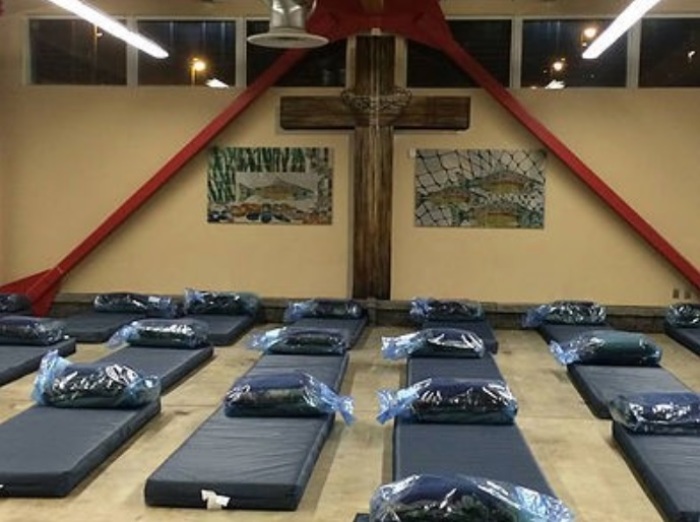Christian women's shelter sues to stop city from forcing it to admit trans-identified men

A faith-based women’s shelter in Anchorage, Alaska, filed a federal lawsuit last week to stop an ordinance from forcing the shelter to admit trans-identified biological males to sleep alongside women who’ve suffered physical and sexual abuse.
The lawsuit was filed last Wednesday by the nonprofit conservative legal group Alliance Defending Freedom on behalf of Downtown Hope Center, a women’s shelter and soup kitchen founded by Anchorage church leaders over 30 years ago.
The complaint also alleges that an updated ordinance will also hinder the shelter’s ability to communicate its religious beliefs on sexuality and gender on its website or signs.
The new legal filing follows an initial lawsuit filed back in 2018 on behalf of the Downtown Hope Center, which faced a complaint after referring an injured and inebriated trans-identified individual to a hospital rather than let him stay in the facility. A court later sided with the shelter, and the city dropped its complaint.
In May, the Anchorage Assembly amended its city ordinance banning places of public accommodation from discriminating based on sexual orientation or gender identity. The shelter’s lawyers believe the amended language attempts to find a new way to force Downtown Hope Center to let biological males sleep next to abused and trafficked women.
“The court previously ruled that the initial laws did not apply to the Downtown Hope Center,” attorney Christy Allen said in an interview with The Christian Post. “So then, it seems that Anchorage was displeased with that ruling, and they wanted to be sure that those laws did apply. So they rewrote the law to basically include homeless shelters within those definitions.”
The assembly amended the definition of “public accommodation” to include facilities “of any kind, whether licensed or not, whose goods, services, facilities, privileges, advantages or accommodations are made available to the general public.” The old definition only applied to “business[es]” or “professional activit[ies].”
But the lawsuit argues that “[m]any of the [updated] law’s terms and phrases are undefined.”
ADF maintains that the Downtown Hope Center should not be considered a “public” accommodation and argues that it is a “private, religious entity that ministers to a select group of people.” That select group is described as “homeless women who have suffered physical and sexual abuse at the hands of men.”
“Women who use the shelter have told Hope Center officials that they would not feel safe if they had to sleep and/or undress next to biological men,” the lawsuit reads.
Allen believes that the timing of the rewritten law seems like it was a response to the earlier court ruling.
“The previous litigation was mentioned in the discussions about changing the law, so it does seem that it is directly correlated to the outcome of the previous suit,” she told CP.
In a statement last Thursday, ADF Senior Counsel Kate Anderson stressed that the overnight women’s shelter provides “a safe place for women, many of whom have suffered due to sex trafficking, rape, or domestic violence at the hands of men.”
“Women deserve a place to sleep where they can feel secure,” Anderson argues. “City officials have no business trying to force the center to violate its beliefs by demanding that the shelter allow biological men to sleep mere feet from vulnerable women. This is the second attempt by the city to force Downtown Hope Center to violate its religious beliefs to the detriment of the women it serves.”
The lawsuit argues that the city’s ordinance violates the First and Fourteenth Amendments to the U.S. Constitution. The shelter seeks a preliminary and permanent injunction to stop the city from enforcing the ordinance.
The Downtown Hope Center launched as part of a vision of Anchorage church leaders who sought to share God’s love with the city’s homeless population. The shelter provides overnight housing, meals, laundry services, hot showers and job-skills training.




























